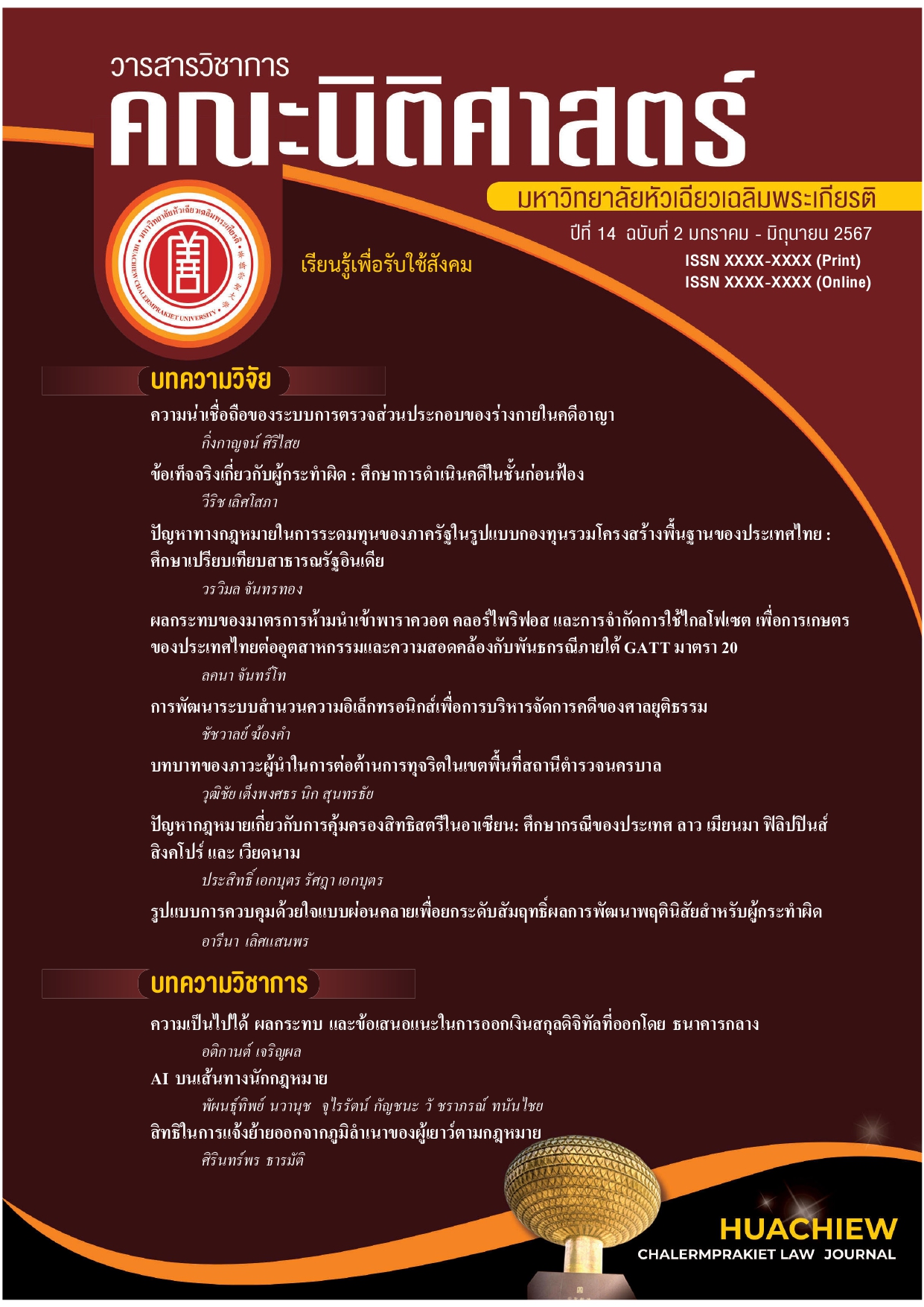AI On The Legal Path
Keywords:
Artificial Intelligence,, Legal ProfessionAbstract
Advances in digital technology and innovations have caused disruptions in various aspects of society. Computer intelligence, also known as "artificial intelligence" or AI, has precipitated disruption and societal change. AI has been harnessed as a mechanism for understanding and solving problems, thus assuming a pivotal role in both human life and the education system, especially within the legal profession. It facilitates limitless learning across time and space, enabling education to occur ubiquitously and at any time. Consequently, bolstering graduates' digital technology skills becomes essential for their ability to adapt to technological disruptions and societal transformations. Therefore, teaching AI serves as preparation for impending changes in the legal education system. However, even though AI can perform certain tasks within the legal profession instead of humans, it can only serve as an assistant for specific functions. Complex legal competencies, such as negotiation, court case presentations, judgment writing, and the ethical work of lawyers, are abilities that AI cannot replicate as effectively as humans. Consequently, it is imperative for lawyers to enhance their knowledge and skills in AI technology. The challenges of collaboration between human lawyers and AI must be effectively addressed to accommodate forthcoming changes.
References
กมลชนก พูลสวัสดิ์และคณะ, “ปัญญาประดิษฐ์กับการจัดการเรียนการสอนวิทยาศาสตร์” (2565) 21:1 วารสารครุศาสตร์อุตสาหกรรม.
เกียรติพงษ์ อุดมธนะธีระ, ประวัติความเป็นมาของปัญญาประดิษฐ์ (31 พ.ค.2561) information-technology <https://www.iok2u.com/article/information-technology/ai-001-artificial-intelligence-origins>.
ชูพันธ์ รัตนโภคา, ความรู้เบื้องต้นทางปัญญาประดิษฐ์ (พระนคร: มหาวิทยาลัยเทคโนโลยีพระจอมเกล้า, 2559).
ณัฏฐ์ อรุณ, ปัญญาประดิษฐ์กับการประยุกต์ใช้งาน (ม.ป.ป) (ปทุมธานี: มหาวิทยาลัยกรุงเทพ, 2554).
เนื้อแพร เล็กเฟื่องฟูและคณะ, บทบาทของการค้าและเทคโนโลยีต่อการปรับเปลี่ยนของโครงสร้างตลาดแรงงานของไทย (กรุงเทพ: จุฬาลงกรณ์มหาวิทยาลัย, 2562).
ราภรณ์ ดวงชื่น, การบริหารสถานศึกษาในยุคดิจิทัล (กรุงเทพฯ: สำนักพิมพ์จุฬาลงกรณ์ราชวิทยาลัย, 2561).
วงศ์พันธ์ อมรินทร์เทวา, ผลิกโฉมกระบวนการยุติธรรมภายใต้ทำมือ AI และ Block chain (22 พ.ค. 2566) ai-block chain-in-justice <https://www.the101.world/ai-blockchian-in-justice/>.
วิชา มหาคุณ, “วิชาชีพนักกฎหมาย.” (2556) 10:6 วารสารจุลนิติ.
เศรษฐพงค์ มะลิสุวรรณ, “The Year of Disruption” (22 พ.ค.2566) pecial-artiele <https://www.tet.or.th/images/artiele/special-artiele>.
ศรัณย์ศิริ คัมภิรานนท์, AI เทคโนโลยีอนาคตประเทศไทย (พระนคร: สำนักงานเลขาธิการวุฒิสภา, 2562).
สมศรี พุทธธรรมวงศ์, แนวทางการจัดการศึกษาเพื่อพัฒนากำลังคนด้านปัญญาประดิษฐ์ที่สอดคล้องกับความต้องการของการค้าปลีกสมัยใหม่ (พิษณุโลก: มหาวิทยาลัยนเรศวร, 2563).
สุกัญญา แช่มช้อย, การบริหารสถานศึกษาในยุคดิจิทัล (กรุงเทพฯ: สำนักพิมพ์จุฬาลงกรณ์ราชวิทยาลัย, 2561).
สำนักงานคณะกรรมการการอุดมศึกษา, ยุทธศาสตร์การพัฒนานิสิตนักศึกษาในสถาบันอุดมศึกษา (2560-2564) (25 มิถุนายน 2562) pdf <https://www.mua.go.th/users/bhes/pdf/PSE_Book.pdf>.
สำนักพัฒนาดิจิทัล, เทคโนโลยีปัญญาประดิษฐ์สำหรับการบริหารภาครัฐ ระบบออนไลน์ (20 พ.ค.66) dga-e-book <https://www.dga.or.th/document-sharing/dga-e-book/annual-ai/47112/>.
Downloads
Published
How to Cite
Issue
Section
License
Copyright (c) 2024 Huachiew Chalermprakiet Law Journal

This work is licensed under a Creative Commons Attribution-NonCommercial-NoDerivatives 4.0 International License.
บทความหรือข้อความคิดเห็นใด ๆ ที่ปรากฏในวารสารฉบับนี้เป็นวรรณกรรมของผู้เขียนโดยเฉพาะ คณะนิติศาสตร์มหาวิทยาลัยหัวเฉียวเฉลิมพระเกียรติ และกองบรรณาธิการไม่มีส่วนรับผิดชอบหรือไม่จำเป็นต้องเห็นด้วยกับข้อคิดเห็นนั้น แต่ประการใด








